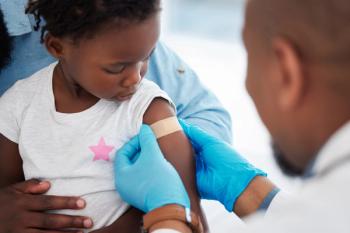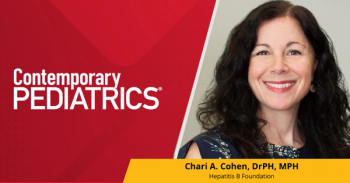
- Consultant for Pediatricians Vol 7 No 9
- Volume 7
- Issue 9
Vaccines: Issues-and Answers
Vaccines may represent the greatest advance in children’s health of the past 50 years, but they also, sadly, can frequently be a source of stress for today’s pediatricians. There is the issue of potential difficulty in recouping the cost of the vaccines from managed care organizations.
Vaccines may represent the greatest advance in children’s health of the past 50 years, but they also, sadly, can frequently be a source of stress for today’s pediatricians. There is the issue of potential difficulty in recouping the cost of the vaccines from managed care organizations. There may also be struggles to convince parents who are reluctant to have their children vaccinated because of anxiety about autism, fears of other adverse effects, or concerns that their preteen daughters will get the wrong message about sex. This special issue of Consultant For Pediatricians provides a wealth of information that can help you greatly reduce these stresses.
Help countering anti-vaccine sentiment. Dr Linda Nield’s article, “Anti-Vaccine Media: Its Impact-and Strategies to Combat It,” provides concrete and practical suggestions for ways to counter the anti-vaccine sentiments and arguments you encounter from patients’ parents. Dr Nield recommends that pediatricians take time to peruse the anti-vaccine information and misinformation parents are likely to see on the Internet and elsewhere and to proactively bring up the subject with them. You may also want to consider letting parents know of your personal choice to vaccinate your own child.
Facts for allaying fears of autism. Drs Golder Wilson and Miranda Ramirez offer good, solid information that can help you combat parents’ fears that vaccines may precipitate autism (see “Vaccinations: Immunizations Do Not Cause Autism Spectrum Disorder . . . They Prevent Disease”). These authors trace the history of the Lancet article that first claimed to document a connection between the measles-mumps-rubella (MMR) vaccine and developmental regression and autism in 12 children- including the journal’s publication of a retraction when it learned that the author’s investigation had been funded by subjects’ trial lawyers. Wilson and Ramirez also provide statistics that show a continuing increase in autism rates even after thimerosal was eliminated from vaccines.
An exploration of issues surrounding the HPV vaccine. The new human papillomavirus (HPV) vaccine is perhaps the most controversial vaccine of all. In her article on the HPV vaccine, Dr Jean Someshwar discusses the various concerns that parents are likely to have about vaccinating their daughters, and she provides the facts you will need to address with sensitivity and authority the issues they raise. For example, many parents are not aware of the relatively high percentage of even young teenaged girls who are sexually active. Moreover, many adolescent girls and young women are unaware of the connections between HPV and either cervical cancer or genital warts.
Strategies to address vaccine-related financial woes. Finally, Dr Richard Lander, a crusader on behalf of more equitable physician compensation for vaccinations, outlines a variety of practical steps you can take to ensure that vaccinating patients becomes a properly remunerated part of your practice as well as a personally rewarding one. He suggests strategies for negotiating the best possible contract with a managed care organization and provides detailed information on how to code for vaccinations in order to be reimbursed all that you are entitled to.
The editors and authors hope that the information offered in the following pages will reduce vaccine-related stresses and help pediatricians move closer to the goal of protecting all of their patients from vaccine-preventable illnesses.
Articles in this issue
about 17 years ago
Consequences of 3 Vaccine-Preventable Diseasesabout 17 years ago
Vaccine Costs, Compensation, and Access: Problems-and Solutionsover 17 years ago
Anti-Vaccine Media: Its Impact-and Strategies to Combat Itover 17 years ago
Information For Parentsover 17 years ago
HPV Vaccine: Questions and Controversiesover 17 years ago
A Collage of Genital Lesions, Part 2Newsletter
Access practical, evidence-based guidance to support better care for our youngest patients. Join our email list for the latest clinical updates.









